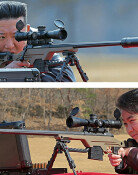[Op-Ed] `Smart` Party
When Apples iPhone debuted on the Korean market late last year, people were unsure if it would make such a great splash. That doubt has been removed as many people are now using smartphones on the street and workplaces. The number of smartphone users was just 200,000 people last year, but analysts say the figure will top two million this year. Dubbed a mobile personal secretary or a hand computer, the smartphone has ushered in an era of mobile business due to its smart functions.
The smartphone allows a user to conduct data communication anytime and anywhere in going beyond the boundaries of the fixed-line communication-based Internet. With a smartphone, a user can read an e-mail message and handle simple business chores outdoors without visiting a PC café. The user can visit a strange place with satellite-based map service, play mobile games, and receive global news through Twitter. For this reason, certain conglomerates are distributing smartphones to all staff for use as a channel of communication to share ideas and news.
Chung Byung-kook, new secretary general of the ruling Grand National Party, said yesterday, Ill make the Grand National Party a smart political party. He pledged to create a SMART party representing symphony, messenger (communication with the public), active, renovate and together (with the people). If the party can truly end the era of the political void through communication and change, it will be truly a great victory for Korea.
How the party will bring about change merely with its catchphrase remains uncertain, however given the political reality. The party is embroiled in an internal strife between a faction supporting President Lee Myung-bak and another backing former party chief Park Geun-hye over the revision of the Sejong City project, and seems to have little authority as the ruling party. It will be insufficient for the party to merely urge the wider use of new media, construction and operation of a mobile homepage, and the introduction of smart communication systems such as SMS service including Twitter. If the party remains in the analog era and fails to read the peoples opinions, reform its outdated political practices, and change its wrong perception, its purported transition into a SMART party will proved half-baked.
Editorial Writer Park Seong-won (swpark@donga.com)







